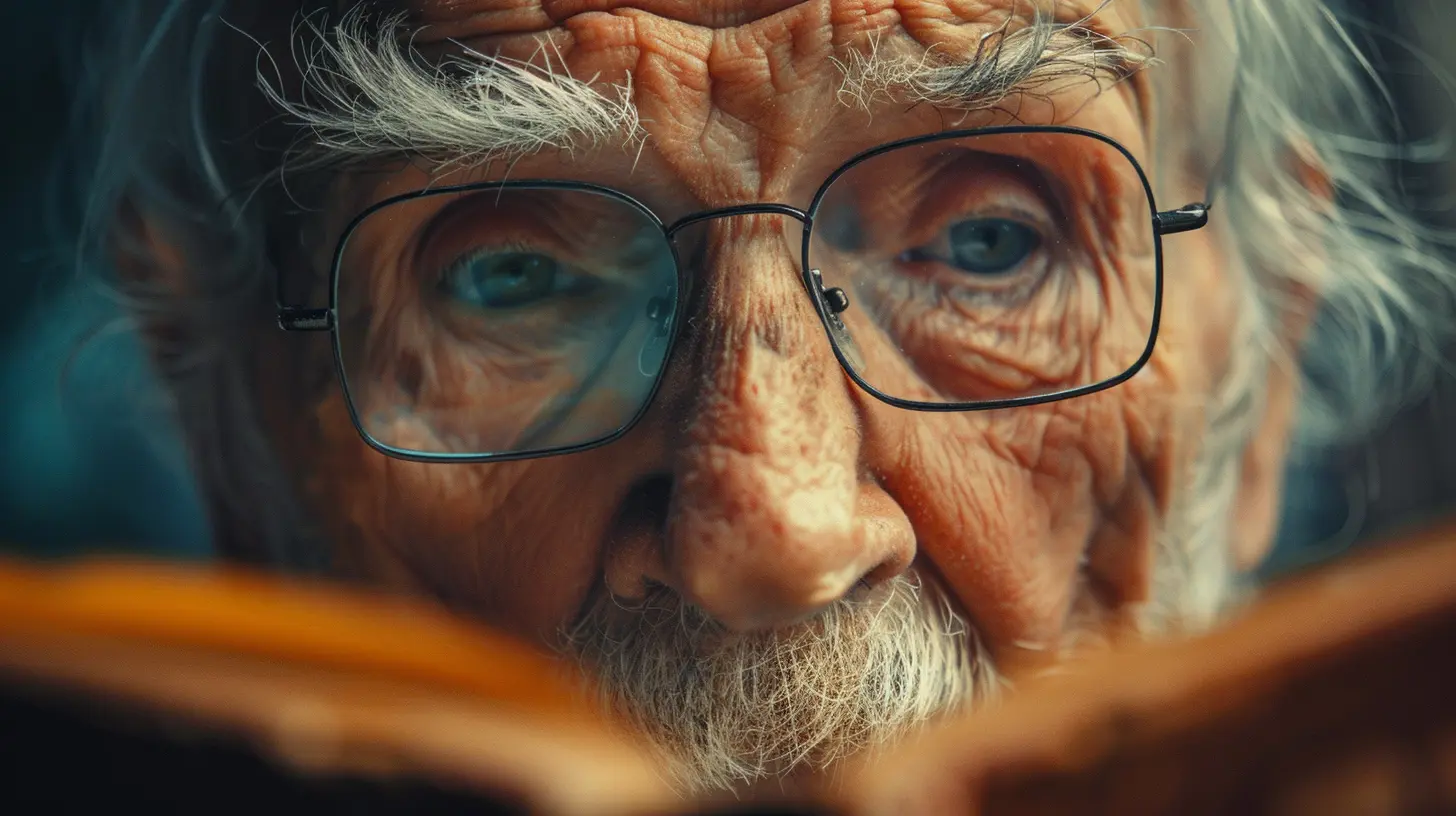The Importance of Lifelong Learning in Healthy Aging
17 July 2025
Aging—it’s something we all face whether we like it or not. For most of us, the goal isn’t just about adding more years to life—but adding life to those years. You’ve probably heard loads about exercise, nutrition, and sleep when it comes to healthy aging. But there’s one powerful habit that often gets overlooked: lifelong learning.
That’s right. Keeping your brain curious and active isn’t just a fun hobby—it’s a legit way to boost your mental, emotional, and even physical well-being as you age. Let's dive into why lifelong learning matters more than ever when you’re aiming for a vibrant, healthy life well into your golden years.
What Is Lifelong Learning (And Why Should You Care)?
Lifelong learning isn’t just about going back to school or earning new degrees. It's about staying curious, feeding your brain, and constantly being open to new ideas, skills, and experiences.Whether it's picking up a new language, learning how to play the guitar, exploring digital photography, or even figuring out how to bake sourdough bread—anything that stretches your brain counts.
But why should you bother, especially when your career is winding down or your daily routine feels pretty solid?
Because your brain doesn’t come with an expiration date, and using it is key to keeping it sharp.
The Brain Is Like a Muscle—Use It or Lose It
You’ve heard this before, right? The brain is like a muscle. Stop using it, and it starts to weaken. Keep challenging it, and it stays strong.Here’s the deal: As you age, your brain naturally undergoes some changes. Processing speed may slow down, memory might hiccup, and multitasking gets harder. But that doesn’t mean cognitive decline is inevitable.
Neuroplasticity—the brain’s ability to form new neural connections—even in older age, is the secret weapon here. Lifelong learning fuels that process. Think of it like giving your brain a daily workout. Just like walking or resistance training strengthens your body, learning keeps your brain agile and youthful.
Mental Health? It Gets a Major Boost Too
Let’s face it—aging can come with emotional ups and downs. Retirement, empty nesting, or health challenges can trigger feelings of isolation, boredom, or even depression.That’s where lifelong learning swoops in like a superhero.
Learning gives you a sense of purpose. It keeps you engaged with the world around you. It builds self-esteem, boosts confidence, and even provides a satisfying sense of achievement. Whether you're mastering a new recipe or diving into a classic novel, your brain lights up with reward.
Even better? Many lifelong learning experiences come with social interaction. Online classes, local book clubs, or hobby groups connect you with like-minded people, helping you stave off loneliness and nurture meaningful relationships.
Cognitive Decline? Nope, Not So Fast
Alzheimer’s and other forms of dementia strike fear into many of us. While there’s no guaranteed way to avoid them, research consistently shows that mental stimulation through learning can lower your risk or delay onset.Engaging in new intellectual challenges helps build what's called cognitive reserve. Think of it like your brain’s emergency backup system—it allows your brain to cope better with age-related changes or damage.
In fact, studies have shown that seniors who engage in regular learning activities fare better on memory tests, problem-solving, and mental flexibility. That’s a pretty strong argument for keeping your curiosity alive, isn’t it?
Physical Health and Learning—Yes, They’re Connected
This might surprise you.While learning is mostly thought of as a brain-boosting habit, the ripple effects extend to your physical health too. How? Let's break it down.
- Better health behaviors: Learning more about health, nutrition, and fitness can lead to smarter lifestyle choices.
- Improved coordination: Learning a musical instrument or dance can enhance motor skills and balance.
- Stress reduction: Engaging in enriching activities gives your mind a break from worry and stress—which can lower blood pressure, improve sleep, and even boost immunity.
- Increased activity levels: Many learning experiences involve movement—gardening, photography walks, or tai chi classes—all of which help keep the body active.
So really, it’s all connected. A curious mind often leads to a more vibrant body.
It’s Never Too Late to Start—Seriously
One of the most toxic myths out there is “I’m too old for this.”Guess what? That’s flat out wrong. You’re never too old to try something new. Age might change how long it takes to learn something, but it doesn’t erase your ability to learn. Many seniors pick up new hobbies or languages in their 60s, 70s, and beyond.
Take Grandma Moses for example. She started painting in her 70s and became one of the most famous American folk artists of the 20th century. Or Yuichiro Miura, who climbed Mount Everest at age 80.
What do they all have in common (besides being super inspiring)? They never stopped learning and challenging themselves.
How to Incorporate Lifelong Learning Into Your Routine
Okay, so now you're convinced this is important. But how do you actually fit it into your day-to-day life without getting overwhelmed?Here are some simple, fun, and practical ways to keep your brain buzzing:
1. Take Online Courses
Websites like Coursera, Udemy, or even YouTube offer thousands of free or low-cost classes. From art history to coding, there's something for everyone.2. Read Daily
Even 20 minutes a day with a good book or a thought-provoking article adds up in a big way over time. Try mixing fiction and nonfiction to keep things fresh.3. Join a Local Club or Group
Libraries, senior centers, or community colleges often host book clubs, DIY workshops, or discussion groups. Bonus: You get that sweet social interaction, too.4. Learn a New Language
Apps like Duolingo or Babbel make this fun and easy. Plus, it gives your brain a serious workout and may even delay cognitive decline.5. Pick Up a Creative Hobby
Paint, knit, write, garden, or build something. Creativity isn’t just for "artsy" types—it fuels mental health and problem-solving skills.6. Play Brain Games
Sudoku, crosswords, memory games, or even puzzle apps can keep your mind on its toes.7. Volunteer or Mentor
Sharing your knowledge and learning from others is a two-way street that keeps your brain engaged and your heart full.The key here? Just start. Choose something that excites or intrigues you. Then make it a regular part of your routine, even if it’s just a few minutes a day.
Lifelong Learning Is an Attitude, Not an Age
At its core, lifelong learning isn't just an activity. It’s a mindset. It’s about staying curious, open, and adaptable no matter what age you are.Aging is inevitable—but how we age involves choices. Choosing to keep learning is one of those small but powerful decisions that can impact your entire well-being.
You don’t have to chase titles, diplomas, or even mastery. Just be willing to try, explore, and engage.
Think of it like watering a plant. Your brain—your entire being—needs regular nourishment to grow and thrive. Lifelong learning is that nourishment.
Brainy Today, Better Tomorrow
Let’s not overcomplicate this. Lifelong learning isn’t about cramming facts or memorizing stuff like you're back in high school.It’s about living with intent. It's about staying mentally and emotionally alive. It’s about giving yourself the tools to fight back against decline and live a life full of curiosity, connection, and joy.
Getting older doesn’t mean fading out—it can be the most dynamic and vibrant phase of life. You just need to feed your mind the same way you feed your body. And the best part? It’s never too late to start.
So go ahead—dust off that camera, sign up for that Spanish class, or open up that book you’ve been meaning to read. Your future self will thank you.
all images in this post were generated using AI tools
Category:
Healthy AgingAuthor:

Holly Ellison
Discussion
rate this article
1 comments
Azurael Rocha
Lifelong learning enhances cognitive function and adaptability, crucial for aging well and maintaining overall health and well-being.
August 7, 2025 at 4:55 PM

Holly Ellison
Absolutely! Lifelong learning not only sharpens our minds but also helps us adapt to changes, promoting healthier aging and overall well-being. Thank you for highlighting this vital connection!


